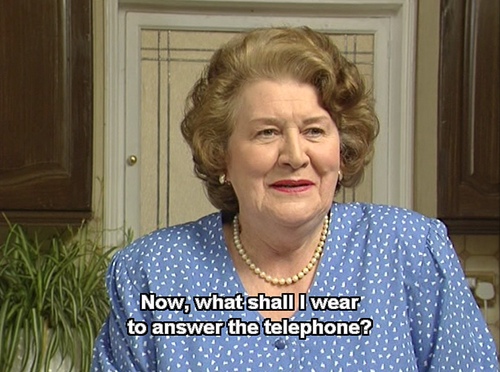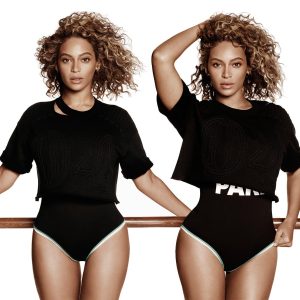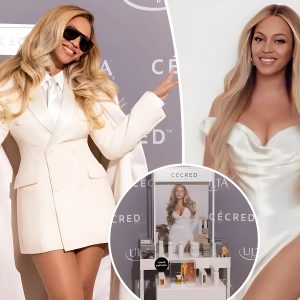The Real-Life ‘Hyacinth Bucket Syndrome’: When Comedy Reflects a Nation’s Crisis of Class and Image
In the pantheon of British sitcoms, few characters have left as indelible a mark as Hyacinth Bucket—the gloriously delusional, social-climbing heroine of Keeping Up Appearances. Played with award-winning flair by Dame Patricia Routledge, Hyacinth’s obsession with appearances, propriety, and status was the comedic engine that drove five acclaimed seasons from 1990 to 1995.
She was known for her over-the-top insistence on pronouncing her surname “Bouquet” (it’s spelled Bucket), her unrelenting pursuit of upper-class respectability, and her cringe-worthy efforts to host candlelit suppers for reluctant guests. But while Hyacinth was created for laughs, her character has taken on a deeper cultural significance in recent years.
In a strange twist of life imitating art, experts and commentators have coined a term for a very real sociological phenomenon: Hyacinth Bucket Syndrome. And it’s no joke.
From Fictional Farce to Financial Folly
The “Hyacinth Bucket Syndrome” refers to the increasing tendency among certain segments of the British middle class to cling desperately to an image of affluence and social standing—even when their financial reality no longer supports it. This syndrome, made painfully visible during and after the most recent economic recession, reflects a nationwide struggle to maintain appearances while drowning in debt.

In Keeping Up Appearances, Hyacinth’s antics were played for laughs. She arranged floral deliveries to herself, boasted endlessly about her (likely fictional) connections to aristocracy, and recoiled at her working-class relatives like they were walking embarrassments. Her obsession was rooted in fear—fear of being ordinary, of being looked down upon, of being exposed.
Today, similar anxieties ripple through the real world. A recent survey revealed that over a third of British homeowners would rather maintain their current lifestyle—despite mounting debt—than admit financial struggle to friends and neighbors. Even more tellingly, over half of women surveyed said that their home is a direct reflection of who they are, and that downsizing would deal a serious blow to their perceived status.
Sound familiar?
It’s as if Hyacinth Bucket has stepped off the soundstage and taken up residence in living rooms across the UK.
The Pressure of Appearances
Much like her on-screen counterpart, the modern Brit facing this syndrome often finds themselves caught between fiscal responsibility and the fear of social regression. Whether it’s continuing to shop designer while credit card balances soar, or taking out personal loans to host extravagant events, many are prioritizing image over stability.
This is especially true for women, who continue to feel the pressure of maintaining the illusion of “having it all”—a beautiful home, stylish clothes, and a lifestyle that suggests effortless success. Hyacinth’s neuroses, once the stuff of sitcom satire, now read like a mirror held up to a society obsessed with keeping up with the Joneses.
But this is where the genius of Keeping Up Appearances lies: it was never just a comedy about an eccentric housewife. It was a sharp, if subtle, commentary on the insecurities of the British middle class, trapped between aspiration and authenticity.
Hyacinth’s World: A Microcosm of Class Tensions
In the show, Hyacinth’s desperate climb up the social ladder is constantly sabotaged by the return to her roots. Her sisters Daisy and Rose live modestly and make no pretenses about their station in life. Daisy’s husband, the slovenly and loveable Onslow (brilliantly portrayed by the late Geoffrey Hughes), lounges in his vest watching telly all day, representing everything Hyacinth wants to hide.
These characters aren’t just comedic foils—they are anchors of reality. While Hyacinth floats through a world of imagined grandeur, it’s her interactions with her down-to-earth family that keep the viewer grounded.
In today’s world, the contrast still exists. On one side, curated Instagram lives and Pinterest-perfect homes; on the other, the unfiltered reality of rising bills, shrinking wages, and the mental toll of pretending everything is fine.
A Legacy That Lives On—and Warns
Decades after Keeping Up Appearances ended, its influence has never waned. Hyacinth Bucket became a cultural archetype: a woman so afraid of being judged that she performed a role every waking moment. And now, in an era of performative wealth, social media facades, and economic uncertainty, her legacy has taken on a new—and more somber—dimension.
Experts say that Hyacinth Bucket Syndrome is more than a joke or a clever phrase. It’s a warning sign. The refusal to confront financial realities in favor of social performance can have devastating long-term consequences—not just on bank accounts, but on mental health, family relationships, and societal stability.
Comedy as a Cultural Compass
It’s no small feat for a sitcom character to leave such an imprint on the psyche of a nation. Hyacinth Bucket, in all her floral-printed finery and aristocratic airs, may have been a figure of fun—but she was also a symbol. A symbol of denial, of fragile identity, and of a society obsessed with status over substance.
Keeping Up Appearances gave us permission to laugh at these obsessions. But it also asked us to think. Why do we care so much what others think? Why is a smaller house seen as failure rather than freedom? Why, even when drowning in debt, do we smile and say everything is “lovely”?
Perhaps the most unsettling truth is that we all have a little Hyacinth in us. Maybe not the matching teacups and homemade petit fours, but the desire to present a version of ourselves that feels… acceptable. Impressive. Enviable.
But as we learned time and time again from Hyacinth’s misadventures, the façade always cracks.
Final Curtain Call: A Comedic Legacy With Real Impact
As economic pressures continue to reshape the lives of millions, Hyacinth Bucket remains more relevant than ever. Not just as a character, but as a cultural reflection—a warning in floral wallpaper and pearls.
Her name may have been a joke, her antics exaggerated, but her legacy is poignant. She taught us that obsession with appearances leads only to loneliness and frustration. And perhaps, in her relentless performance of upper-class grandeur, she inadvertently reminded us that authenticity, humility, and connection are worth far more than fine china and social approval.
In the end, Hyacinth Bucket Syndrome is not just about comedy or class. It’s about confronting the masks we wear—and deciding, finally, to take them off.
Because sometimes, the bravest thing you can do is say, “This is who I really am.” Even if it means being just a little less… Bouquet.





